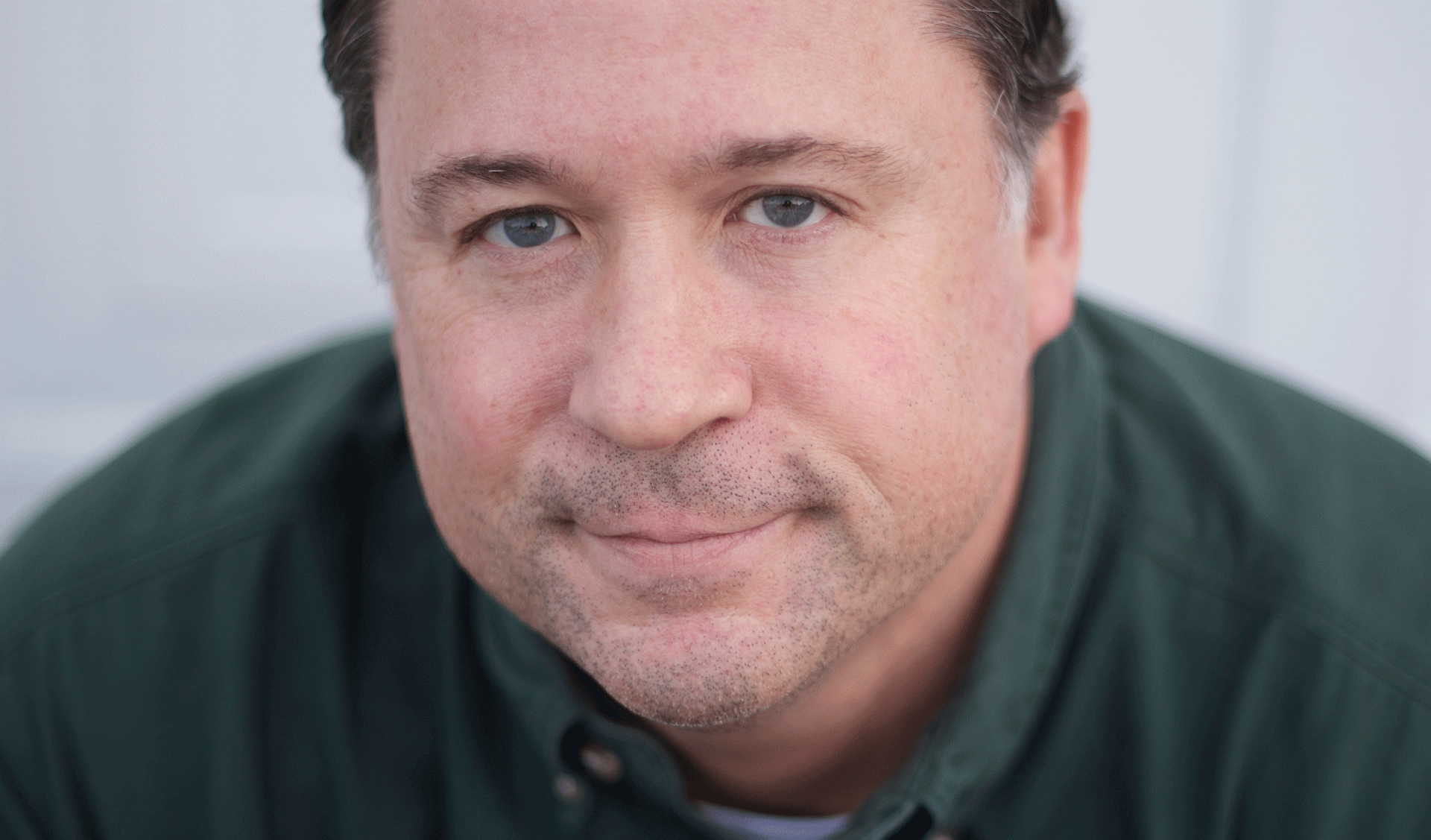“Essentially you’ve ruined your life,” how local man lives, learns with Biopolar 1

The Columbus Bar Association is hosting a series of free, public Community Wellness forums beginning this spring, including topics such as “The Science of Happiness,” “Living a Life of Purpose,” “Emotional Intelligence and Wellness,” and “Student Mental Health Issues.” For updates, visit cbalaw.org.
Head space holds a different meaning for Michael Jarosi.
Jarosi seems to keeps an understandable emotional control over the events of his past, where car wrecks and homelessness live. Occasional tears testify to their still-present potency. But Jarosi’s existence is also one of resilience and hope, and his hope is that his story will reduce the loneliness, misunderstandings, and stigma that accompany a path such as his.
During college, Jarosi was hit by two things. The first was a bolt of lightning. Just after accepting a soccer scholarship to the University of Virginia, Jarosi was on the field when a thunderbolt hit his father. Standing nearby, Jarosi absorbed the current through the metal cleats on his shoes. He was initially rendered unconscious, then experienced a strong sense of vertigo. Jarosi’s father was quickly life-flighted to Grant Hospital and died in the ICU that fall. In a stupor of grief and trauma, Jarosi went through his first three years of college. If campus counseling services were available, he was unaware of them.
The second was an accident that produced a revelation. During his third summer at college, Jarosi began losing sleep and behaving erratically. The pattern of bizarre behavior escalated until he wrecked his car. Instead of remaining at the scene, he went home and took a nap.
“When people see that, the first assumption is drugs,” said Jarosi. “My soccer coach took me to the emergency room and they did a diagnostic. They checked my heart and my pupils and those didn’t show any signs of illicit drugs. And then they did a blood test […] and there were no drugs in my blood.”
The doctors concluded that Jarosi had type one bipolar disorder.
The Hurricane Within
Bipolar disorder, previously known as manic depression, is a mental disorder that causes both clinical depression and phases of escalating hypomania—an elevated mood characterized by sleeplessness, increased energy, intensified emotions, a decreased inhibition, a lessened regard for consequences, and sometimes psychosis.
Despite the turbulence in his life, Jarosi continued to function in many areas. He finished school with a professor commenting that Jarosi’s final exam was one of the best he’d ever received. After graduating, Jarosi got a job at a consulting firm where he could use his research and Spanish-language skills. He established significant relationships along the way. For a short time, he believed that bipolar disorder was merely a developmental stage that he could leave in the past.
However, the increasing productivity Jarosi was experiencing was actually an ominous sign of hypomania that once again led to unstable behavior. The series of hospitalizations that punctuated Jarosi’s adult life began their cycle.
“My hospitalizations could have been the result of a loved one persuading me to go to the hospital. Unfortunately, that was very rarely the case. It was generally court-ordered and by force.”
Gradually, Jarosi came to accept he had a chronic and incurable mental condition that had changed what he had believed would be the forward motion of his life and career. The ebb and flow of his life has contained seemingly contradictory events such as escaping from a psychiatric hospital in Alabama where he had been chemically and physically restrained, as well as graduating from Capital Law School.
Jarosi often uses the metaphor of a hurricane to describe the cycle of mania and depression, and how it can result in a life that is both productive and destructive.
“Whatever you might try to achieve, you might be on a path to achieving it, or you might achieve it. But then it gets wiped out because of the manic episode and the consequences of [that episode]. Essentially you’ve ruined your life. Significant others, relationship, job, finances, everything is destroyed,” said Jarosi. “So when you then become stabilized, you have to decide what you’re going to do. And that can be different things for different people. You have to make the decision as to where you’re going to pick up with your life. You can be very much starting from scratch.”
Journey to Wellness
At one point, Jarosi became homeless, as many people with mental illness do. For no particular reason, he went to Chicago.
“What many people don’t understand about homelessness, especially when it involves substance abuse and mental illness, is that it’s not that people don’t have anywhere to go. It’s that people don’t have anyone anymore,” Jarosi said. “With serious mental illness, family members and friends can simply no longer handle that person because of the toll the illness has taken on relationships.”
BROUGHT TO YOU BY
In Chicago, Jarosi was taken in by a Salvation Army shelter and began some of the practices that he continues today to walk the balance. He attended services at the Salvation Army and witnessed the power of spirituality. He became particularly interested in the Old Testament book of Job. He found a counselor who had served 25 years in prison and gave him a new perspective and a message of hope. He began exchanging letters with his wife to heal their relationship. Today they spend time together after dinner each day, listing things they are thankful for.
“I want to do all the things that I can—all the things that are possible—to stay healthy. I try my best to assemble those things in my life. At the same time, none of those things, and the combination of those things is not a silver bullet.”
Jarosi also follows a regimen of appropriate medication, light therapy, fitness training, and equine therapy.
“Horses help me a lot. They’re a different animal; they’re much different than a dog or a cat. They have different instincts. And they can be very, very dangerous animals. But they can also be incredibly compassionate,” said Jarosi. [There is] power that horses have when you trail ride and you go up and down these very, very steep hills in the Appalachians that humans could not get up and down. You feel the power of the horse underneath you and it’s very primal. I enjoy it and it’s
good therapy.”
Fighting the Stigma
The public stigma surrounding mental health issues is an additional layer of weight for a person living with mental health issues. For Jarosi, it has meant that in career situations, he must conceal much of his past, or find different ways to account for time he has lost in treatment.
“There’s also hard evidence if you do a background check,” Jarosi added. “Somebody wants your academic transcripts. They see semesters off, a dive in your grades.”
As part of his wellness journey, Jarosi has undertaken a personal mission of reducing that stigma, starting with the Columbus Bar Association. He has presented his story for continuing legal education credits, encouraging the legal profession to become a profession where workers can be open about mental illness and the work environment can be part of an individual’s supportive network. He’s also working on Thunderstruck, a memoir.
“If I can help the message of stigma and start in the legal profession, there may be a […] trickle down effect where some people who have the ability to make changes will understand the stigma better. I think that’s possible.”
While bipolar disorder is still a relatively unusual diagnosis, Jarosi believes that his experience and message is helpful for anyone coping with the stresses of life, even if they do not have a specific mental disorder.
“Don’t be ashamed of those things and don’t be ashamed of those feelings and those struggles,” Jarosi advises. “Just because something isn’t a diagnosable mental illness doesn’t mean that [issue] is not something a person is struggling with in their life. Mental health services, I think, can be of assistance to people with different issues, not necessarily [just] a diagnosed psychiatric issue.” •
BROUGHT TO YOU BY




